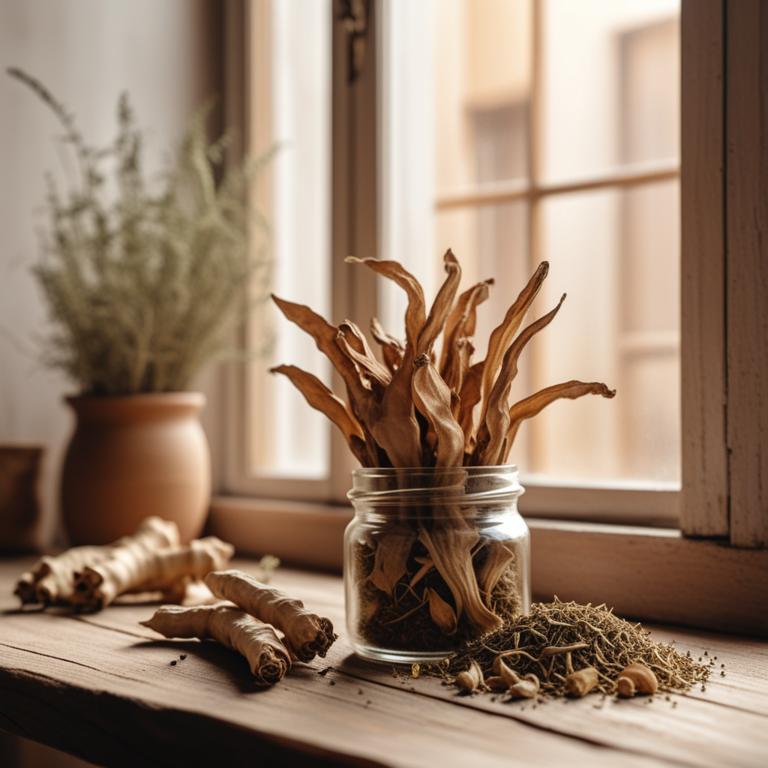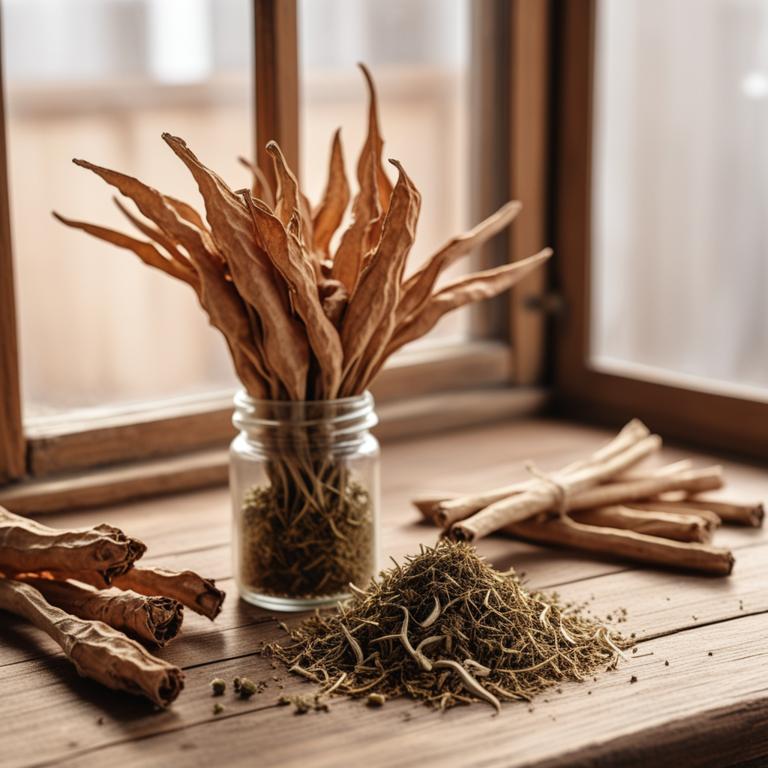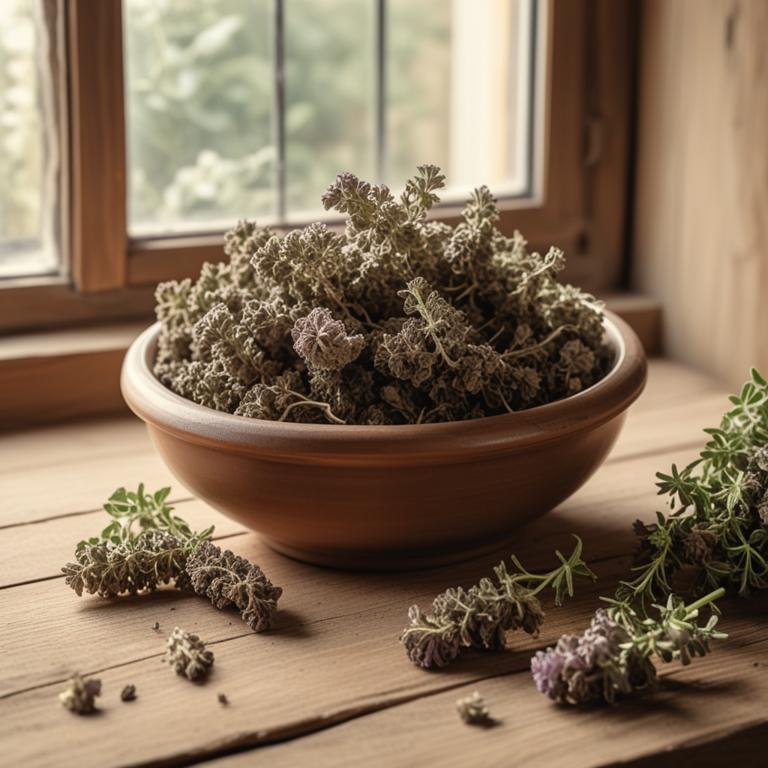Updated: Dec 1, 2024
Blocked Nose: Causes, Prevention, and Medicinal Herbs for Relief
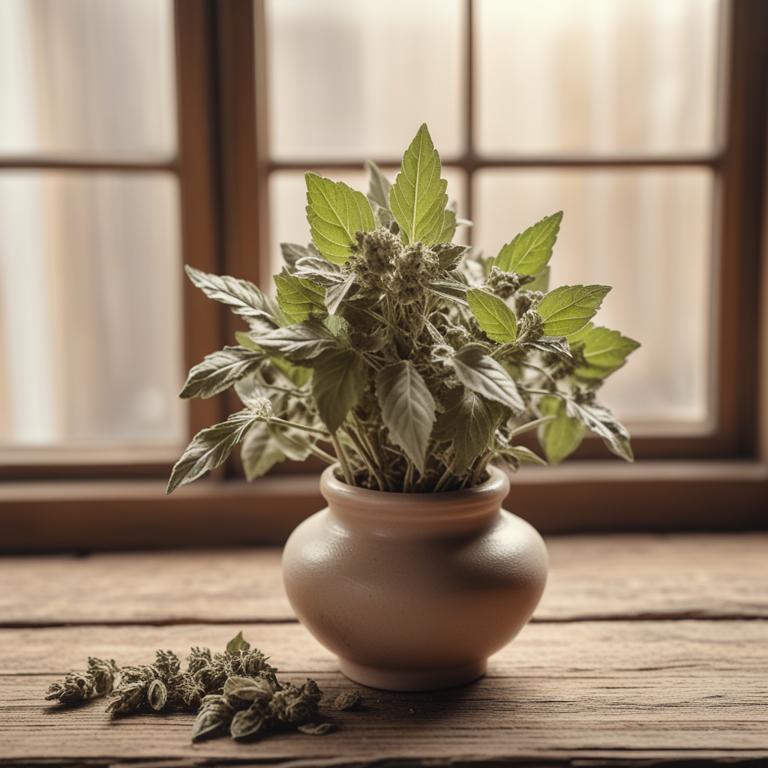
A blocked nose can be such a nuisance, making it hard to breathe and making everyday activities feel like a struggle.
When the nasal passages are congested, it can lead to headaches, fatigue, and a general feeling of discomfort. So, what causes this?. Common culprits include allergies, colds, and sinus infections, which can be triggered by dust, pollen, and other airborne particles. Fortunately, there are some herbal remedies that can help alleviate the symptoms of a blocked nose. Herbs like eucalyptus, peppermint, and ginger have natural decongestant properties that can help clear out the nasal passages.
Eucalyptus, in particular, is known for its ability to break down mucus and reduce inflammation. You can use these herbs in a variety of ways, such as drinking tea made from dried eucalyptus leaves, inhaling the vapors of a eucalyptus steam inhaler, or applying eucalyptus oil to your chest and nose. When it comes to preparing herbal remedies for a blocked nose, teas are a great option. Simply steep a teaspoon of dried eucalyptus or peppermint leaves in a cup of hot water, and drink as needed. You can also add a few drops of eucalyptus oil to your bath water for a soothing and decongesting soak.
Whatever method you choose, herbal remedies can be a natural and effective way to ease the symptoms of a blocked nose.
Table of Contents
What causes the sensation of a blocked nose?
The main causes of blocked nose are quite common and often related to our environment and health.
One of the main causes is a cold, which occurs when a virus attacks our nasal passages, making it hard to breathe. This is because the virus causes inflammation and excess mucus production, blocking the nasal passage. Another common cause is sinusitis, which is an infection of the sinuses that can be caused by a bacterial or viral infection. When the sinuses become infected, they swell and produce excess mucus, blocking the nasal passage.
Allergies are also a major cause of blocked nose. When we come into contact with an allergen, such as dust, pollen, or pet dander, our body reacts by producing excess mucus and causing inflammation in the nasal passages. This makes it hard to breathe and causes congestion. Finally, nasal polyps are growths that occur on the lining of the nasal passages.
These polyps can be caused by allergies, asthma, or other conditions and can block the nasal passage, making it hard to breathe.
What are the positive effects of using herbs on a blocked nose?
Using herbs to help with a blocked nose can be really beneficial.
These natural remedies can help to loosen and clear out mucus, making it easier to breathe. They can also reduce swelling and inflammation in the nasal passages, which can contribute to congestion.
Many herbs have decongestant properties, meaning they can help to open up airways and improve airflow. Some herbs also have antimicrobial properties, which can help to fight off infections that may be causing the congestion. Additionally, herbs can be used to warm and moisturize the nasal passages, making it easier to breathe and reducing sinus pressure.
They can also be used to soothe and calm the body, which can be especially helpful when you're feeling stressed or anxious due to congestion.
What are the main medicinal plants for a blocked nose?

Herbs have been used for centuries to help relieve a blocked nose.
One of the most popular herbs for this issue is Eucalyptus globulus, also known as eucalyptus oil. This oil is extracted from the leaves of the eucalyptus tree and has natural decongestant properties. When inhaled, it helps to open up the airways and ease congestion. Another herb that's commonly used is Thymus vulgaris, or thyme. Thyme has natural anti-inflammatory properties, which help to reduce swelling in the nasal passages and ease congestion. Rosmarinus officinalis, or rosemary, is also often used to help with a blocked nose.
Rosemary contains compounds that help to thin mucus, making it easier to breathe. This makes it a great herb to use in a steam inhalation. Another herb that's often used is Mentha x piperita, or peppermint. Peppermint helps to ease congestion by thinning mucus and making it easier to breathe. It also has a natural cooling effect that can help to reduce swelling in the nasal passages. Finally, Zingiber officinale, or ginger, is often used to help with congestion.
Ginger has natural anti-inflammatory properties that help to reduce swelling in the nasal passages and ease congestion.
What herbal treatments are typically used for a blocked nose?

When you have a blocked nose, it can be hard to breathe and make you feel uncomfortable.
Herbal preparations can help ease congestion and provide relief. A decoction is a strong liquid made by boiling herbs in water. Ginger decoction, for example, can help loosen mucus and reduce inflammation, making it easier to breathe. Capsules are another way to take herbal remedies. They're easy to swallow and contain a concentrated dose of herbs like eucalyptus or peppermint. These herbs can help open up airways and ease congestion.
A tincture is a liquid extract of herbs that's usually taken in small doses. Thyme tincture, for instance, has antibacterial properties that can help fight off infections that cause blocked noses. Herbal tea is a soothing drink that can help calm a blocked nose. Peppermint tea, for example, can help ease congestion and coughs. You can also add honey to make it taste better. Lastly, an infusion is similar to tea but made with more delicate herbs like chamomile or lavender.
These herbs can help calm you down and promote relaxation, which can help your body fight off the infection causing your blocked nose.
Additional Resources:
Which herbs are best avoided if you have a persistent blocked nose?
If you have a blocked nose, it's best to avoid using herbs like Salvia officinalis, also known as sage, because its strong fragrance can irritate your nasal passages even more.
Foeniculum vulgare, or fennel, has a pungent smell that might make congestion worse. Lavandula angustifolia, or English lavender, is known for its calming effects, but its potent aroma can be overwhelming when you're trying to breathe.
Anethum graveolens, or dill, is another herb with a strong scent that might exacerbate congestion. Cinnamomum verum, or true cinnamon, has a warm, spicy smell that could further irritate your nose. When you're congested, your body is already working hard to clear out excess mucus, so using these herbs could make things more difficult.
Their potent aromas can stimulate your nasal passages, making you feel even more stuffy and uncomfortable.
FAQ
Are there any specific herbs that can prevent blocked nose?
Some herbs, like eucalyptus and peppermint, have natural decongestant properties.
Their oils can help loosen mucus and reduce nasal congestion. You can inhale the vapors from a hot bath or inhale the scent of eucalyptus oil directly from a cloth or inhaler.
These herbs can provide some relief from a blocked nose.
Is it safe to use herbal remedies for blocked nose during pregnancy?
When you're pregnant and have a blocked nose, you might be tempted to try herbal remedies.
However, some herbs can affect your baby's development, so it's best to be cautious.
Stick to well-known and gentle herbs like peppermint or eucalyptus, which can help ease congestion without harming you or your baby.
Are there any herbs that can reduce the frequency of blocked nose?
Eucalyptus oil is often used to help ease congestion.
When inhaled, it can help open up airways and make breathing easier.
Ginger has also been known to have a similar effect, as it can help reduce inflammation in the nasal passages, making it easier to breathe and possibly reducing the frequency of blocked noses.
Can i combine different herbal remedies for blocked nose?
You can combine different herbal remedies for a blocked nose.
For example, you might use a steam inhaler with eucalyptus oil and then drink a tea made with peppermint and ginger. This combination can help loosen mucus and ease congestion.
Just be sure to use each remedy as directed, and adjust the amounts based on how you feel.
Related Articles

Snoring: Causes, Herbal Remedies, and a Good Night's Sleep
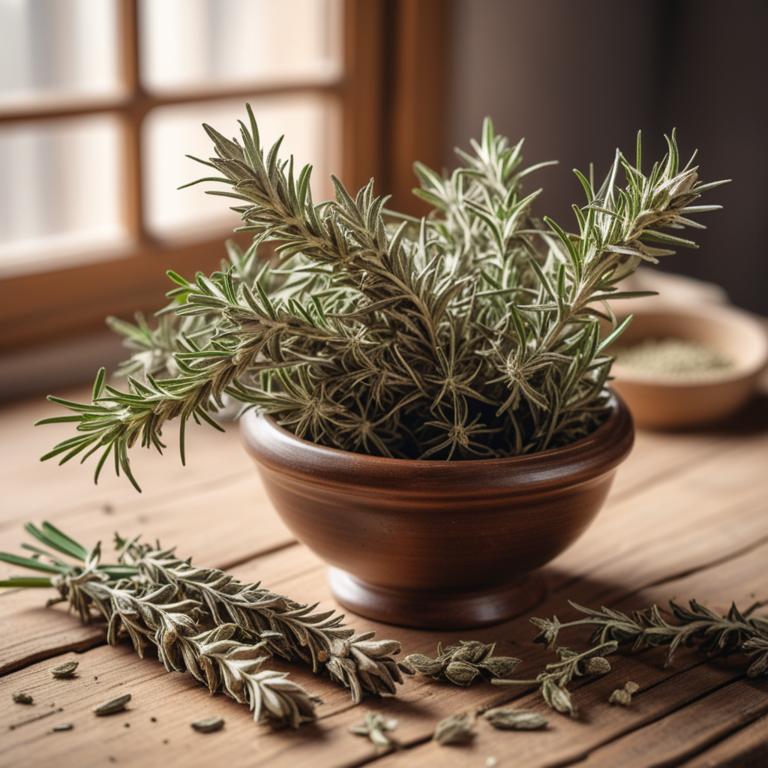
Understanding Sinusitis: Causes, Herbal Remedies, and Natural Treatments

Understanding and Managing Fungal Infection with Medicinal Herbs and Preparations
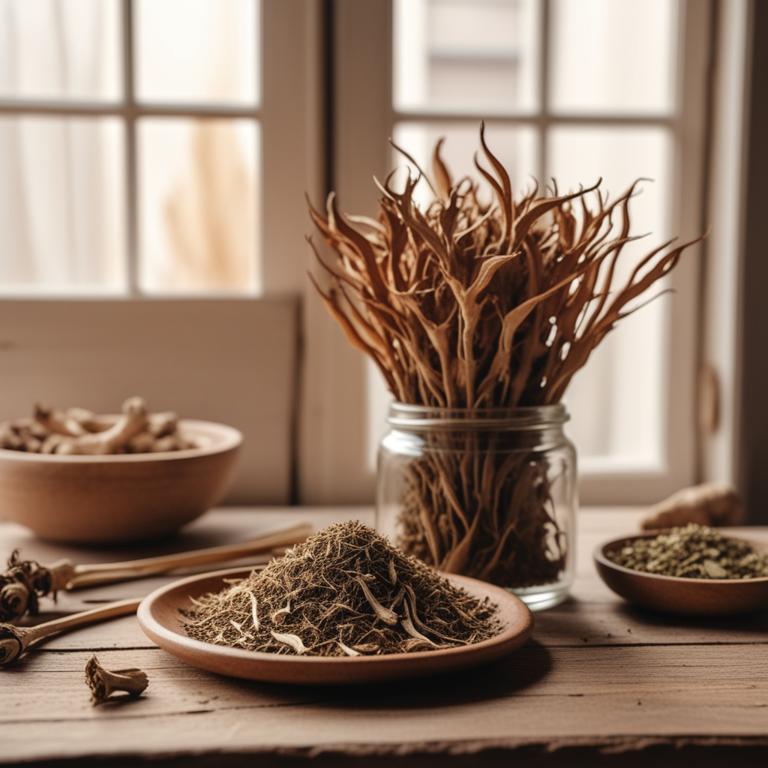
Hoarse Voice: Understanding Causes and Using Medicinal Herbs and Herbal Preparations
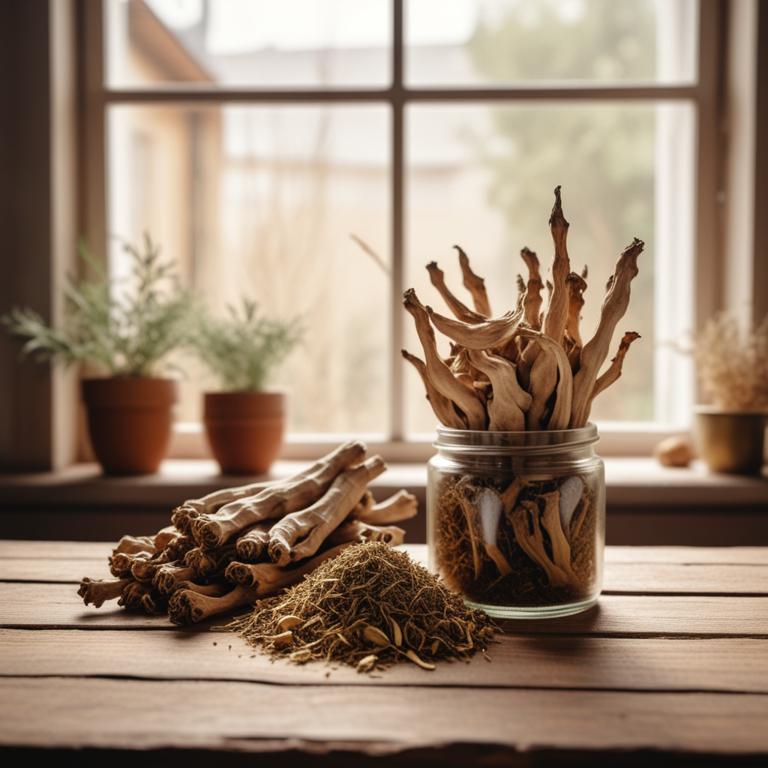
Understanding Chronic Bronchitis: Causes, Medicinal Herbs, and Herbal Remedies
